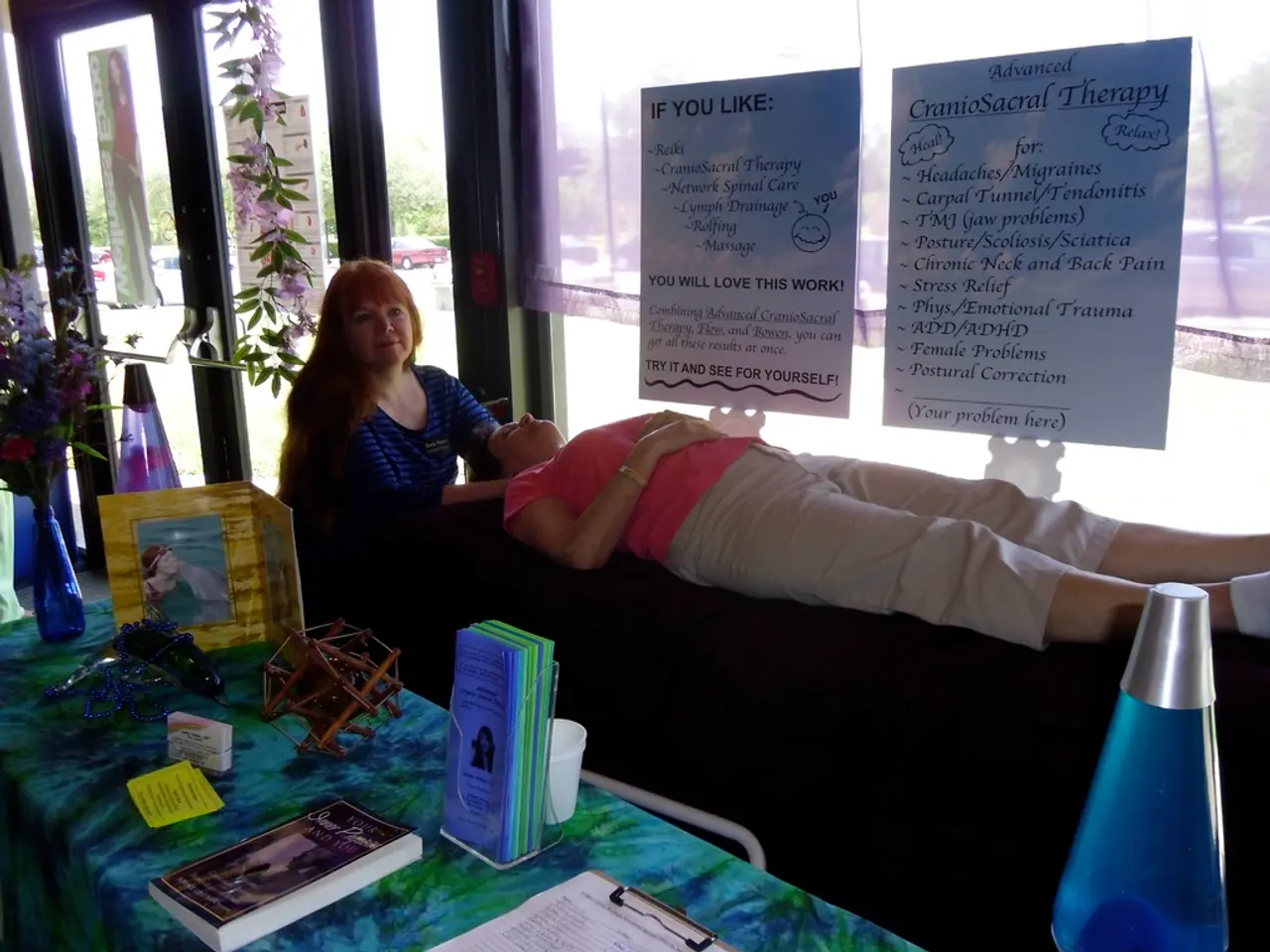Strategies for Managing Clinical Depression for Long-term Mental Health Improvement (27 Key Approaches)
In the battle against clinical depression, a significant number of individuals face the challenge of treatment-resistant depression (TRD). Approximately 40% of adults diagnosed with major depressive disorder do not respond to medication, leading to the need for alternative treatment methods. This article aims to shed light on various options available for managing TRD.
- Medication Adjustments and Augmentation:
Switching antidepressant classes or adjusting dosages may help improve the response to treatment. Adding other medications like mood stabilizers or atypical antipsychotics can enhance the effects of the initial treatment.
- Psychotherapy:
Beyond standard cognitive-behavioral therapy (CBT), intensive or alternative approaches such as dialectical behavior therapy (DBT) or schema therapy may be beneficial. These therapies work to develop new coping skills and process emotional challenges.
- Ketamine and Esketamine Treatments:
Ketamine infusions and Spravato® (esketamine nasal spray) have FDA approval and can rapidly reduce depressive symptoms for some patients. These treatments are often combined with talk therapy for better outcomes.
- Transcranial Magnetic Stimulation (TMS):
TMS uses magnetic pulses to stimulate brain regions involved in mood regulation. It is non-invasive, generally well-tolerated, and given over multiple sessions. Variants include standard TMS, Deep TMS (targeting deeper brain areas), and accelerated protocols like SAINT. Deep TMS has shown over 80% response rates and more than 50% remission, with sessions shorter than standard TMS and typically covered by insurance.
- Electroconvulsive Therapy (ECT):
Considered the “gold standard” for TRD, ECT involves inducing controlled seizures under anesthesia. It is highly effective but involves more intensive care and some side effects. Usually reserved for severe, refractory cases or when rapid response is essential.
- Finding the Right Treatment Setting:
Specialized treatment centers that offer a comprehensive, multidisciplinary approach and aftercare support help manage TRD more effectively.
In summary, treatment options for TRD include optimizing and augmenting medication, various psychotherapies, ketamine/esketamine therapies, non-invasive brain stimulation like TMS and Deep TMS, and more intensive procedures such as ECT. TMS represents a promising, non-traditional method with growing evidence for its efficacy and insurance coverage in many locations.
Staying informed about the causes and potential treatments of clinical depression is crucial. If you or someone you know is struggling with depression, seeking assistance from mental health specialists, such as psychiatrists, clinical psychologists, or licensed mental health counselors, is beneficial for managing symptoms. Working with trained medical professionals can help reduce or end symptoms of clinical depression.
Nutrition plays a vital role in mental health, and maintaining a balanced diet can help manage symptoms of mental health disorders like depression. CBD, a non-psychoactive compound found in cannabis, is gaining attention for its potential to relieve anxiety and depression.
Health-and-wellness practices like fitness-and-exercise, yoga, and mindfulness meditation may also contribute to overall mental wellbeing and help as adjunct therapies in the context of treatment-resistant depression.
In addition to conventional treatments and therapies-and-treatments, science continually explores new frontiers to address the challenges of mental health, such as virtual reality therapies and neurofeedback techniques.
Lastly, understanding the link between mental health and physical health is paramount in comprehensive care. Managing physical health through routine check-ups, regular exercise, and healthy eating habits can lead to improved mental health and overall wellbeing.




